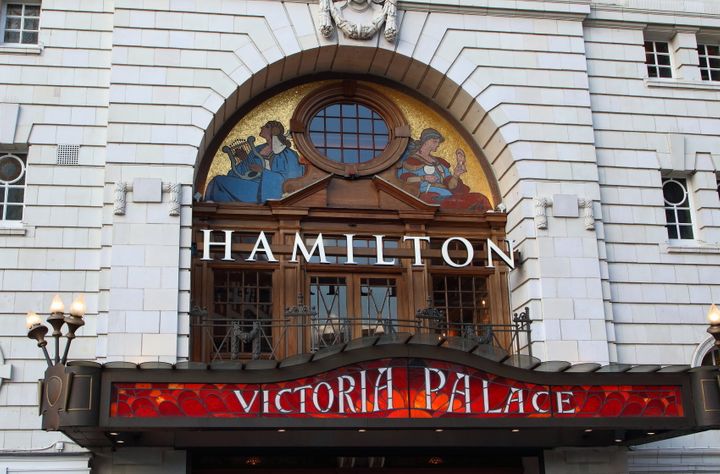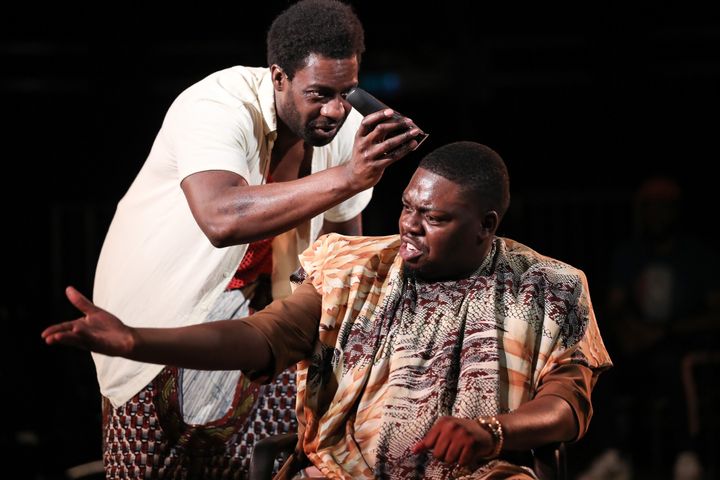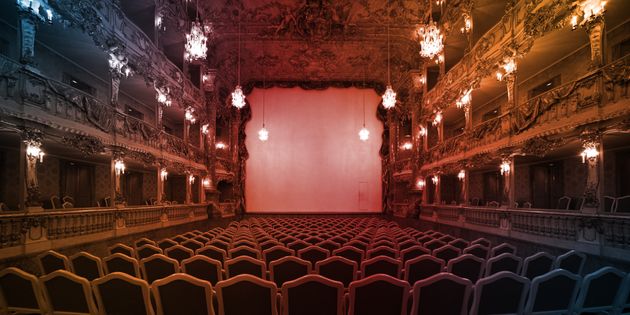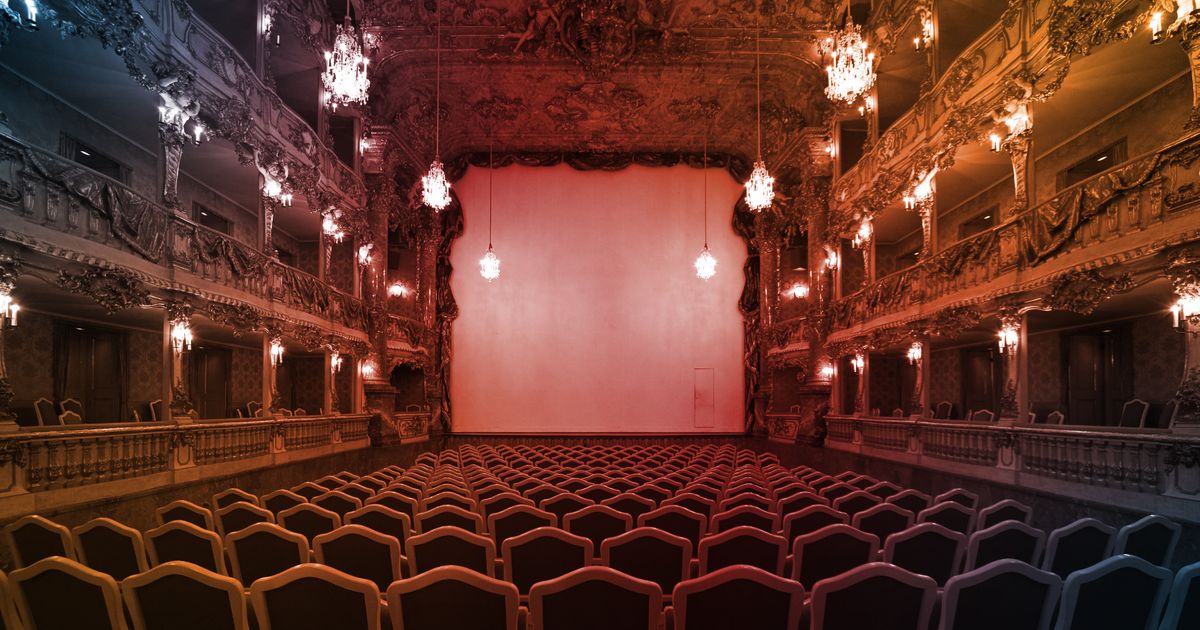You’re reading My Black History, a series of personal reflections from Black women in the UK on the meeting point of history and life lessons.
I was six when I saw my first play – a pantomime version of Cinderella. Feeling the stage come alive through performance and music was a thrill, even at that young age. I signed up to every drama and music club at school and went on every theatre trip. And I even started considering a career in musical theatre.
Advertisement
This love of theatre is genetic, I think – my late father was a huge fan of the arts. He was president of the drama club at university and travelled all the way to London from Kenya to watch Miss Saigon. My sister inherited the theatre bug, playing Annie at the age of 10 and taking performing arts at school all the way up to sixth-form. It was only natural for me to follow in both their footsteps.
But as I got older, my dreams of performing in the West End began to feel unrealistic for a Black girl from Dagenham. Most of the shows I saw featured an all white cast. Black performers only seemed to get the lead roles in shows like The Lion King and Dream Girls. As my West End dreams started to fade, my love for theatre grew – and became a hobby, one that has become even more joyful with the rise in Black shows and Black stories in the UK theatre world.
Advertisement
One play that really stands out for me is Tree, which I saw, pre-pandemic, at the Young Vic in 2019. Before the show started, it felt like a full-on club. A DJ was playing Dancehall and Afrobeats, while the cast and audience danced on stage. The story, which is based on an album by Idris Elba, started off in London but swiftly moved to South Africa, following a boy called Kaelo after a family tragedy. Seats for the show were limited so we stood for most of it, but I barely noticed, I was so engrossed. Moments like this highlight for me that Black theatre can challenge how traditional theatre should look and feel.
Around the same time, I managed to get tickets for the most talked about musical in town. I had no idea what Hamilton was, I just knew I needed to be there and as soon as I heard the first song I was hooked. Though Hamilton isn’t a Black story per se, seeing Black actors in lead roles at the Victoria Palace theatre was a powerful reminder of why I fell in love with the arts. Hamilton highlights how theatre can tell a story in such a poignant way. It shows the realms of possibilities that can be explored on stage.
Advertisement

SOPA Images via Getty Images
When, almost two years later, I was finally able to see a play again, it was like coming home. Is God Is at the Royal Court, which I saw last month, focuses on two young African American women on a quest to find their father. Writer Aleshea Harris tackles difficult themes such as domestic abuse and neglect, but finds humour in the struggle. Most of all, though, it was refreshing to be back in a theatre and see people who looked like me on stage and in the audience.
Which is why I find so much joy in Rendition. This online hub for all things Black theatre across the UK was founded by Shore Delano, a 26-year-old digital project manager from Hertfordshire. It has been running for two years now, sharing guides and reviews of Black shows playing right across the country.
Like mine, Shore’s passion was lit at a young age when her mother used to take her and her sister to theatre in London. The family had a yearly tradition of going to the Hackney Empire panto over the Christmas period. This festive extravaganza is legend among parts of the Black community, but going to the theatre regularly is less common.
Shore says theatre fandom “really blossomed’ after university in Warwick, when she returned to London and saw Barber Shop Chronicles by Inua Elms at the National Theatre. There began an “unhealthy obsession” of trying to get to every play she could find out about that was written by, made by, and/or starred Black talent. And it wasn’t long before she spotted something amiss.
Advertisement
“Passion aside, the more I started watching theatre shows with majority Black casts, or distinctly African/Caribbean storylines, the more I noticed that, as a Black audience member, I was in the extreme minority,” says Shore. “While anyone can enjoy good theatre, when plays are moulded upon Black (African/Caribbean/Black British) history and experiences, I believe these stories should be able to be heard and experienced by the people they are based on.”
Take shows like Three Sisters or Strange Fruit Shore says – “for many African and Caribbeans these goes beyond a standard theatre performance. The stories told represent and mirror memories, family histories, lived experiences, and culture. I wanted to create a platform that connected audiences to the stories that often form part of who they are,” she says.

Mike Marsland via Getty Images
Unless you’re part of the theatre world, it can be genuinely overwhelming finding out about shows – especially plays in smaller venues with less visible marketing. This is something Shore noticed when posting reviews on her personal page.
“People would always ask me where I was, what shows I was watching, and how I found out about the shows,” she says. “And I realised that lots of Black people, and specifically young Black people aged 18-35, want to go to the theatre, but for whatever reason are not aware of what to see and when. I realised I could try and plug that gap, and two years later here we are.”
Shore reels off a list of her favourite shows in recent months: Hamilton, of course, And Breathe by Yomi Ṣode at the Almeida, The Fisherman by Gbolahan Obisesan (adapted from Chigozie Obioma’s Booker-award winning book). She also loved Nick Payne’s Constellations, which originally starred white actors, but was revived post-lockdown with a rotating cast of couples including Black British actors Sheila Atim and Ivanno Jeremiah. “They were both amazing!”
Rendition has pointed me to some shows I know I wouldn’t have heard about otherwise, either. For Black Boys Who Have Considered Suicide When The Hue Gets Too Heavy at the New Diorama might be one of my favourites yet. As the name suggests, it didn’t shy away from the struggles young Black men face in this country – exploring themes of knife crime, sexual assault and suicide, while still somehow managing to make the audience laugh. The script and use of music was just so unapologetically Black, and I left feeling inspired that a young Black boy can now go to the theatre and see himself on stage.
During Black History Month, we were able to see a plethora of shows made by Black talent – but there’s so much more work still to do. This should be the norm, year-round. As Shore says, Black theatre helps us appreciate our shared experiences and history. “I especially love to see our stories represented with range and thought, stories that go beyond some of the same trauma-led narratives that we see so often in mainstream media,” she says. “Give me Black untold histories, give me Black British love, give me Black fantasy. All of it!”





